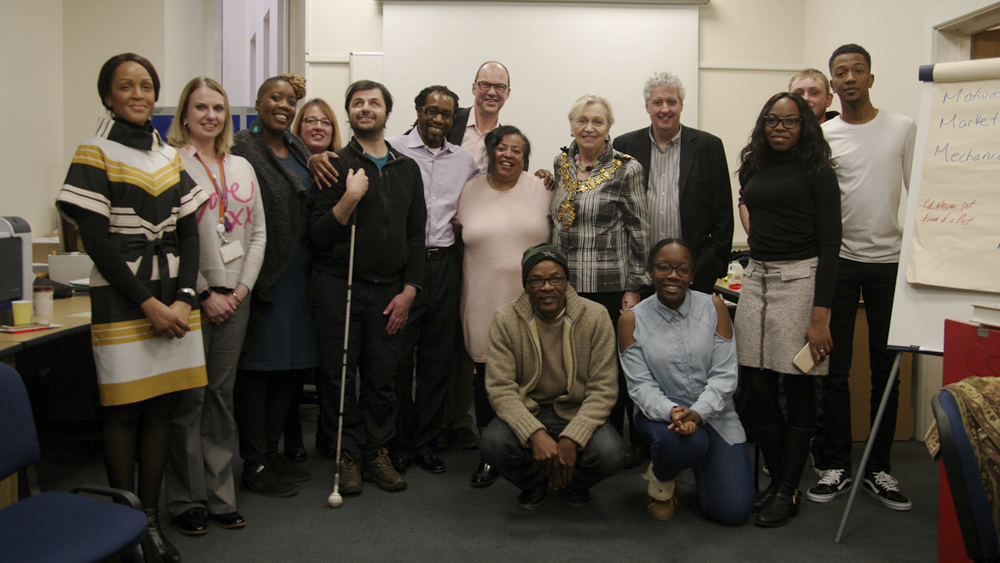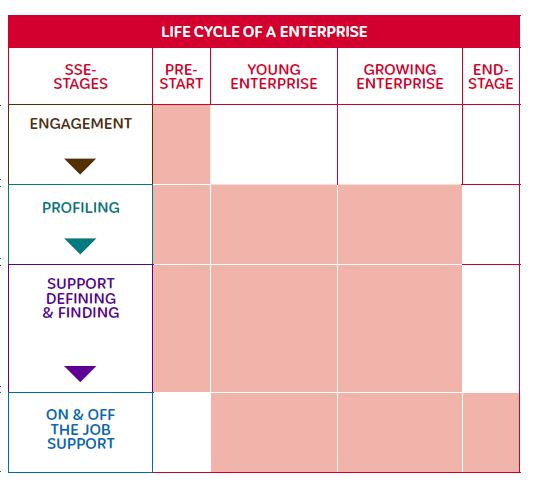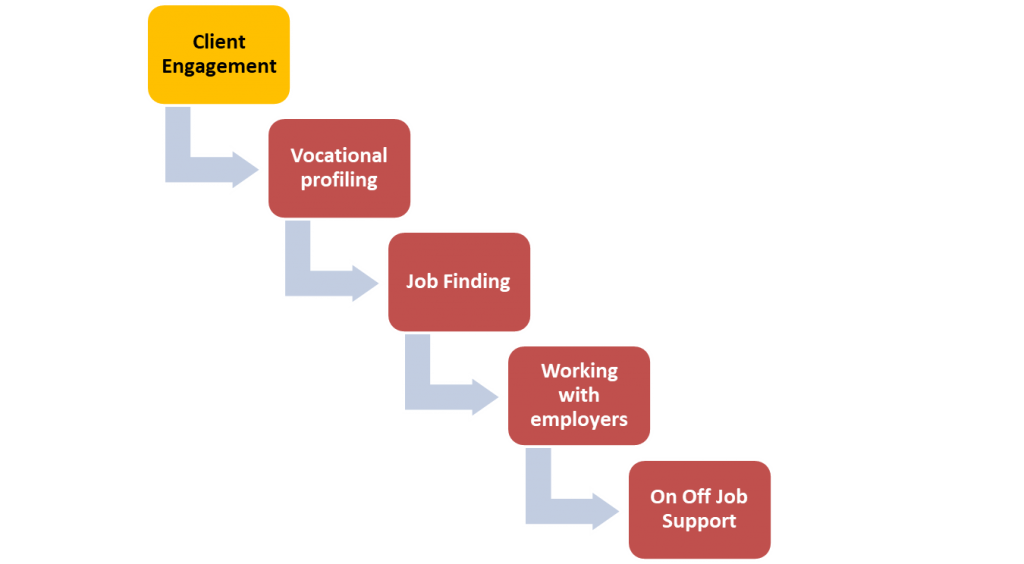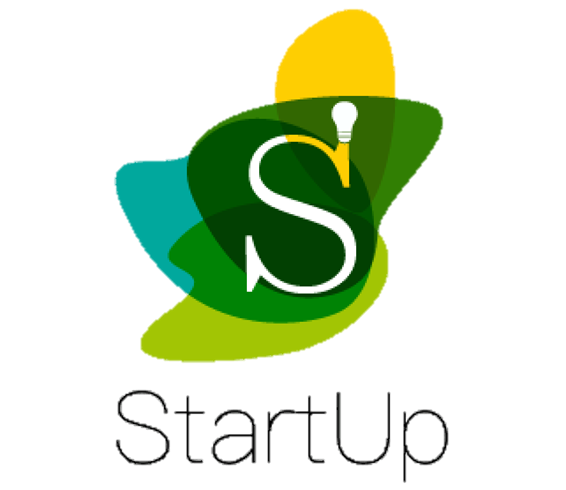Building community supports for self-employment

The Supported Self Employment Academy (SSEA) was established in October 2017 to test new ways of enabling disabled people to explore the potential of self-employment as a route to work. The creative partnership formed by Status Employment, Tree Shepherd, Gateway Employment Support Service and Croydon Council was set up to build the infrastructure upon which this might happen.
The SSEA pilot comprised of a number of group and individual elements that included:
/ An 8 week (extended to 10 week) classroom based group training course delivered by Tree Shepherd at Croydon’s Central Library and based on their existing Start Your Own Enterprise training.
/ Additional business clinics delivered towards the end of the course delivered by the course tutor and business specialist.
/ Ongoing specialist individual disability support input provided by Status Employment and Gateway Employment Support Service through their supported employment services.
/ Further group mentoring, marketing and branding guidance, provided by Progression People, to supplement the classroom sessions.
/ A direct payment of £2000 allocated to each participant
Support, co-ordination, venue and finance was provided by Croydon Council. This included the administration of the direct payments that enabled the selection, support and training for the participants as well as the ongoing facilitation of the programme.
The Supported Self Employment Academy programme recruited 16 participants with a range of disabilities including physical, sensory and learning disabilities and difficulties, autistic spectrum disorders, and mental Ill health. It was a joint venture between 3 Organisations Croydon Council, Tree Shepherd (A specialist entrepreneurship organisation) and Status Employment (A specialist Supported Employment Agency).
The Model
The design for the skills academy was based on a number of supported employment and enterprise development approaches (see images) but there was no template for the direct support aspect of for the entrepreneurs. So far the role could be described as an “entrepreneur enabler” taking experience and skills from several disciplines:
-Job coaching
-Enterprise coaching
-Business circles
-Peer supports

Figure 1 – Life cycle of an enterprise

Figure 2- 5 steps of supported employment
Demand for direct one to one support was more intense and extensive than expected but the support team was struck by the preparedness of the clients and the high levels of motivation they exhibited. As a result a greater number of the business ideas moved faster and further than anticipated.
Entrepreneurs valued the one-one sessions and took full advantage of them others have taken advantage when needed
Results
There was some variation between how the partners defined a successful outcome, but all went beyond simple business start-up as a measure of success to include both employment and health outcomes. For these reasons, although it was important that the programme assessed each business proposition, this was done without compromising the individual’s self-belief.
At the end of the first year, the work of the academy reported the following outcomes:
/ Enterprise
-3 enterprises formally established of which 2 are currently actively trading
-2 test trading
-2 in product/service development phase
/ Employment
-One person secured employment
-One person actively volunteering
/ Social care
-Many examples of positive H&SC impact
Entrepreneur’s Viewpoint
In addition to a number of informal interviews, an online survey was designed and sent to each of the participants to capture their feelings about the SSEA. Whilst it was somewhat interpreted as a survey about the formal enterprise course and it was recognised that some of the entrepreneurs may need to support to engage with it, this did offer an opportunity for participants to feedback anonymously should they so desire. Similarly, although the response rate was low and largely consisted of individuals who had been successful in establishing an enterprise, the survey did confirm that many of the themes emerging from the interviews.
The responses also serve as a reminder of the evaluative framework which highlights the importance of individual circumstances, accountability systems, such as funding and the levels of support. All are represented in the survey responses, but adequately exemplified by the first quote.
‘It helps one to realize that you don’t have to fester in your disability if you have a dream. It’s encouraged me to pursue a long and arduous journey, which WILL be fruitful in the end’
Overall, satisfaction with the course was high with respondents universally approving of the delivery and structure of the SSEA. Many felt it was a positive learning environment and the ability to meet and maintain friendships with people they might not otherwise have met was important. Although not everyone felt that their wellbeing had been improved by the course many found the course beneficial in providing networking opportunities, improving confidence and building the skills needed for business.
‘The peer support from the other candidates has been great and I truly believe I’ve built some relationships for life. I’ve called some of the guys to troubleshoot, on some down days.’
Interestingly, although disability shaped the design of the course, few felt that disability played an important part of the content and that personal disability was not really touched upon either positively or negatively. However, the support provided was repeatedly cited as an important element of the SSEA with recognition of wider Croydon input especially pronounced.


